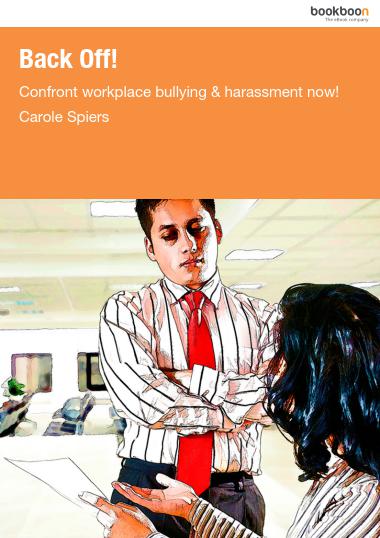Bullying: Effects on People and Reasons Behind It

“You can kill a person only once, but when you humiliate him, you kill him many times over.”
This quote came from the Talmud, the basic book of the Jewish law. Although Jewish in nature, this line can be applied to everyone. Many people are being bullied at work for several reasons, by individual/s either of lower, the same, or higher rank than them. Unfortunately, this incident continues to happen and the rate of occurrence increases as years pass. But what really is bullying? How can we know if bullying is happening in our workplace? How can we differentiate bullying from just ‘tough’ or strict authority?
What is bullying?
Bullying is “the misuse of power or position to persistently criticize and condemn; to openly humiliate and undermine an individual’s professional ability until this person becomes so fearful that their confidence crumbles and they lose belief in themselves”, as described by Andrea Adam in her book, ‘Bullying at work: How to confront and overcome it’. Bullying attacks can be irrational, unpredictable and demonstrably unfair, that is why bullying is considered as a serious stressor in the workplace. However, despite its effects, some cases of harassment at work are considered to be just a part of an ‘effective’ management system that delivers desirable outcomes and results.
Facts about bullying
- You don’t have to be violent to be a bully.
- Not all bullying is confrontational or verbal, it can also be done in social networking sites (cyber bullying).
- Bullying at work can come from any person regardless of position – from managers to your peers.
Some bullying behaviors may be viewed or confused with the following:
- Personality clash
- Attitude problem
- Autocratic management
- Poor management style
- Harassment
- Abrasiveness
- Intimidation
- Unreasonable behavior
- Victimization
In general, bullies are extremely self-orientated. The way they see themselves often clashes with how others, especially their victim/s, see them. Often, their instruction resembles a “just do as I say” command.
Why do some individuals submit to bullying?
Although some people can handle bullying positively, their cases are just few. Most choose to be just victims and submit to their bullies because of the following reasons: They
- are intimidated;
- do not know what remedial action is available to them;
- have no confidence in any such action being taken;
- possess low self-esteem;
- are vulnerable;
- are apprehensive regarding the possibility of losing their job; and
- are worried about the repercussions should they complain.
Effects of harassment at work on the individual
Often, victims of bullying feel helpless. They think that when they speak up, their condition will just get worse. Some choose to just leave their jobs so the bullying will stop as well. However, those who chose to stay experience negative effects, not only emotionally, but also psychologically and physically.
Consequences for workplace bullying
Bullying is not simple, especially for the victim. He/she may not feel comfortable discussing it with his/her colleagues. Often, this gives rise to the following consequences:
- low morale and motivation
- a tense and apprehensive workforce
- staff feeling devalued and demoralized
- reduced creativity
- ineffective management
- increased costs
- declining productivity and profits
- absenteeism and high staff turnover
- loss of investment in training
If bullying is prevalent in a workplace, that workplace is not healthy. Bullying may seem so simple but it can tear not only a person’s life but also the foundation of the company. If it continues to happen, consequences will take place, affecting the individuals involved, their views on their work, the outcomes or results expected from them, and the company itself.



